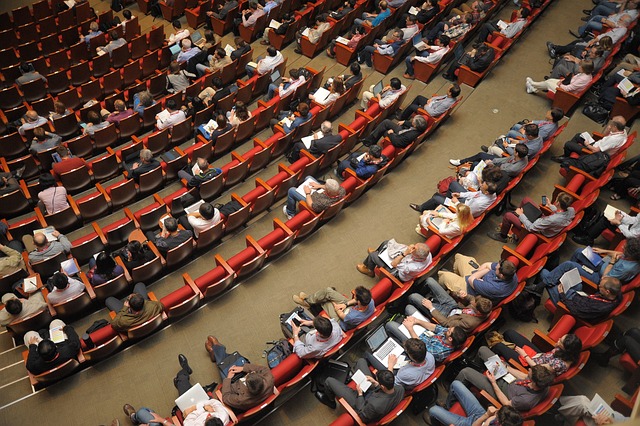For successful event planning that engages and benefits local communities, understand your target audience's demographics, preferences, and passions. Tailor events to meet unique local needs, incorporate regional flavors and traditions, address community challenges, and embrace the area's cultural landscape. This strategic approach, focused on Event Planning for Local Businesses, fosters pride, connection, and higher attendance, ultimately strengthening brand-community relationships through memorable gatherings.
“Unleash the power of local events for your business! Discover the art of event planning tailored to your community. This comprehensive guide reveals how to orchestrate successful gatherings that resonate with your target audience. From understanding community dynamics and preferences to mastering logistics and marketing, we explore every step. Learn to create meaningful experiences, attract attendees, and ensure a seamless event that leaves a lasting impression, ultimately boosting local business engagement.”
- Understanding Your Local Community: Tailoring Events for Maximum Impact
- – Identifying target audience and their preferences
- – Researching local culture and trends to align event themes
Understanding Your Local Community: Tailoring Events for Maximum Impact

Understanding your local community is key to planning successful events that resonate with attendees. Event planners should take time to analyze demographics, cultural preferences, and existing interests within their target area. By tailoring events to meet the unique needs and passions of their local audience, businesses can maximize engagement and create a lasting impact. This involves recognizing and incorporating local flavors, traditions, or even addressing specific community challenges through event initiatives.
For instance, an event planning team working with local businesses might organize a festival celebrating the region’s culinary heritage, featuring dishes from renowned local restaurants. Such an event not only attracts tourists but also fosters a sense of pride and connection among residents. Alternatively, a workshop series aimed at promoting environmental sustainability can engage both business owners and community members in collaborative solutions, positioning the organizing businesses as responsible stewards of the local landscape.
– Identifying target audience and their preferences

When planning local events for businesses, understanding the target audience is paramount. Event planners must delve into the demographics and psychographics of attendees to ensure the event aligns with their interests and preferences. This involves researching age groups, hobbies, career paths, and cultural backgrounds. For instance, a tech conference would cater to professionals in the industry, focusing on relevant topics like emerging technologies and digital trends. In contrast, a family-oriented festival should prioritize activities suitable for all ages, such as live performances, children’s workshops, and food stalls catering to diverse dietary needs.
Identifying audience preferences guides every aspect of event planning. It dictates the event venue, from choosing a spacious park for outdoor festivals to booking intimate spaces for networking events. The selection of speakers, performers, or activities should resonate with attendees’ interests, ensuring higher engagement and satisfaction. Event Planning for Local Businesses thrives on this tailored approach, fostering meaningful connections between businesses and their ideal customers.
– Researching local culture and trends to align event themes

When planning events for local businesses, understanding the unique cultural landscape is key. Researching and embracing the local trends ensures that event themes resonate with the community. For instance, incorporating elements from the region’s history or popular arts can create a sense of belonging and draw in attendees. Event planners can also collaborate with local influencers or organizations to co-create meaningful experiences that align with the area’s values and interests.
By staying informed about the local culture, businesses can design events that cater to their target audience effectively. This strategy not only boosts attendance but also fosters a stronger connection between the brand and its community. Event planning for local businesses should be an immersive process, drawing inspiration from the region’s distinct character to craft memorable gatherings that leave a lasting impression.
Local businesses can greatly enhance community engagement by understanding and leveraging the power of their immediate surroundings. Through meticulous planning, focusing on audience preferences and local cultural nuances, events can become pivotal in fostering connections within the community. By implementing these strategies, event planners can create memorable experiences that resonate with attendees, ultimately driving business success and contributing to a vibrant local scene. Event planning for local businesses is not just about organizing gatherings; it’s about building relationships and creating a lasting impact.
